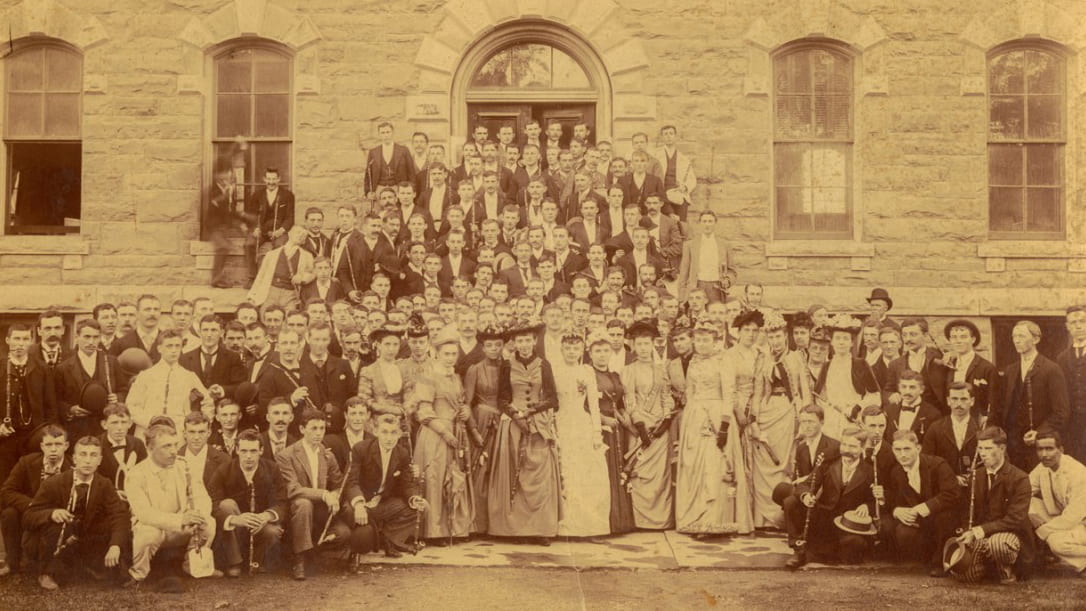The SIPS Diversity and Inclusion Council is open to anyone in the SIPS community who would like to participate in building a diverse, equitable, and inclusive community in our school. New voices, viewpoints and energy are always welcome. Read more about the efforts of our working groups. Questions? Email: sips-dicouncil@cornell.edu.
Indigenous Plant Science faculty position?
At the December SIPS Diversity and Inclusion Council meeting, the Allies for Indigenous Reconciliation working group reported on their progress drafting a vision for a tenure track position in Indigenous Plant Science. Currently, the group envisions a position that would simultaneously honor both Indigenous ways of knowing and cutting-edge science. The balance of teaching, research and extension is still under discussion.
Plant science research topics might include Indigenous land management practices, ethnobotany and ecosystems research, Indigenous food sovereignty, integration of plant science and Indigenous knowledge and a host of others. The position could also provide opportunities for interdisciplinary collaboration.
“This position would fulfill a critical need for Indigenous plant science expertise at Cornell that has been missing since the retirement of Jane Mt. Pleasant,” the working group reports. Mt. Pleasant was an associate professor in the Horticulture Section who taught courses such as Science Meets Spirit, Leadership and Sustainability, and Plants and Human Well-Being. Her research focused on Indigenous cropping systems in the Northeast.
If you want to learn more about the potential position and provide feedback, email Bryan Brown (bjb342@cornell.edu), Charlie Hale (coh22@cornell.edu), or Luna Natoli (lrn35@cornell.edu).
The working group is also looking into establishing a workshop lunch series for this spring to build on the dialog about Cornell’s benefiting from the Indigenous land stolen in the Morrill Act and possible reconciliatory actions. For more information, visit the Cornell University and Indigenous Dispossession website.
Seeds of Survival and Celebration discussion honors Black History Feb. 23, 24
The Department of Inclusion & Belonging’s Inclusive Excellence Academy invites you to take a “Break and Learn” in February by attending Honoring Black History Through Collaboration and Celebration.
The discussion (via Zoom) features three of the 14 co-creators of the Cornell Botanic Gardens Seeds of Survival and Celebration exhibit.
- Kofi Acree, Director of the Clarke Africana Library
- Sarah Fiorello, Interpretation Coordinator, Cornell Botanic Gardens
- Catherine Thrasher-Carroll, Mental Health Promotion Program Director
A 2022 nominee for the “ONE Cornell” Employee Excellence Award, the “Seeds of Survival and Celebration” highlights a critical piece of American history – how enslaved Africans used their culinary skills, plants, and resilience to help shape and inspire signature dishes in a variety of regional cuisines. In this discussion, the exhibit co-creators will talk about how they collaborated to conceptualize and implement this meaningful testament to the Black community of yesterday and today.
There will be two different opportunities to attend this virtual Break and Learn session:
- Thursday February 23rd, 12:15-1:30pm ET
- Friday February 24th, 8:30-9:45am ET
Register here.
More Black History Month events
Derailed by Diversity: Racial Justice after Affirmative Action
Monday, February 13, 7:00 p.m., Sage Chapel
This year’s annual Martin Luther King, Jr. Commemoration will feature Richard T. Ford, the George E. Osborne Professor of Law at Stanford University, engaging the future of racial justice and admissions in higher education. A leading expert on civil rights and antidiscrimination law, Ford will articulate the crucial importance for society and for colleges and universities to advance racial justice and to improve access for historically marginalized communities to higher education. More information.
Douglass Day 2023 – Transcribe-a-thon at the Library
Monday, February 13, Noon to 3:00 p.m., 107 Olin Library
Douglass Day is an international event for creating and preserving Black history in honor of Frederick Douglass. This year, Cornell University Library will celebrate with a transcribe-a-thon of the records of Mary Ann Shadd Cary (1823-1893), one of the earliest Black women to edit a newspaper, serve as a Civil War recruiter, attend law school and more. Together, we will learn about Black abolitionist history and create textual data for the future. Cornell University Library staff will help you get started with transcription — no previous experience is necessary! Drop in any time from noon to 3:00pm. Snacks from Rashida Sawyer Bakery will be provided to in-person participants. More information.
Pitch in!
The SIPS Diversity and Inclusion Council meets monthly via Zoom and has an active Slack channel. We are always looking for people who are passionate about a wide range of issues. Email sips-dicouncil@cornell.edu to learn how you can join in with these and other working group efforts.
Bias in Language: Accentism and ‘Proper’ Speech
From the Cornell AgriTech DEI Bulletin by Anna Katharine Mansfield and Amara Dunn:
After physical appearance, our speech is one of the first things that people notice about us, and it forms an important basis for early impressions.
Everyone has an accent, formed by the way vowels and consonants are pronounced, producing distinguishing tones or musicality. In multicultural societies like the United States, accentism (also called accent discrimination) continues to be a significant, and usually unconscious, form of prejudice.
Both domestic and foreign accents can prompt social discrimination. Accents from the Southern United States are often used in popular media to portray characters who are ignorant or stupid. And Black Americans are criticized for using African American Vernacular English (AAVE).
Generations of Americans believe the artificially regionless ‘General English’ taught in journalism schools is ‘correct.’ American English speakers often assume people with non-native accents are less intelligent and competent and feel justified complaining that accented presenters are ‘hard to understand.’
Because the way we speak is inherently tied to our sense of identity, our bias towards ‘other’ accents is deep-seated and often unconscious. Identifying and correcting such bias becomes easier with practice. When you meet someone for the first time, make a habit of mentally challenging your impressions of their speech, and you’ll start to realize where your implicit biases lie.
Some things you can do to make a language-inclusive workplace:
- Accept that accents are nearly unchangeable, like skin color or height. Contrary to popular belief, it is almost impossible to ‘lose’ an accent, especially when speaking a language very different from that learned in childhood. Complex neurological and muscle-memory patterns are solidified by the end of puberty and may take intensive expert training to overcome – so accents aren’t indicative of laziness or incompetence.
- Don’t be a grammar snob. While good grammar is important for good communication, perfect grammar is (1) a moving target in a living language and (2) extremely difficult to achieve – especially if English isn’t your first tongue. If an idea is communicated clearly, leave grammar corrections for proofreading tasks.
- Re-examine your expectations of ‘professional’ speech. In some situations, the expectation of ‘professional’ speech is used as a subtle way to enforce class barriers. In the United States, this is especially true for Black Americans, who are often perceived as ‘less professional’ if they don’t adopt White speech patterns.
- Slow down and use simple, unambiguous words. American English is packed with idiomatic phrases and nuanced near-synonyms that native speakers use unconsciously. To communicate clearly with foreign-born speakers, slow down, avoid idioms and sports analogies, and focus on enunciating ‘t’s and ‘r’s (which Americans are prone to drop.) When the goal is mutual understanding, simple language is most effective and inclusive.
 Flower strips increase agroecosystem biodiversity at multiple trophic levels. This practice does not require major agroecosystem redesign or yield losses, so theoretically it is available to many growers. However, despite established literature on flower strips and subsidies available in the United States and Europe, this practice is not widely adopted. Westbrook’s research seeks to identify flower strip systems that are both effective and more accessible than standard systems. The work will focus on preserving growers’ management flexibility by requiring only a single year’s commitment and avoiding in-season field operations. It also will explore how delayed planting and landscape context modify the effects of flower strips. These findings will enable Northeastern growers to make accurate, site-specific predictions about the costs and benefits of flower strips.
Flower strips increase agroecosystem biodiversity at multiple trophic levels. This practice does not require major agroecosystem redesign or yield losses, so theoretically it is available to many growers. However, despite established literature on flower strips and subsidies available in the United States and Europe, this practice is not widely adopted. Westbrook’s research seeks to identify flower strip systems that are both effective and more accessible than standard systems. The work will focus on preserving growers’ management flexibility by requiring only a single year’s commitment and avoiding in-season field operations. It also will explore how delayed planting and landscape context modify the effects of flower strips. These findings will enable Northeastern growers to make accurate, site-specific predictions about the costs and benefits of flower strips. Chandel is a soil and crop sciences Ph.D. student in the Luo lab at Cornell University whose research focuses on improving the model representation of plant-mediated water distribution between soil layers as a control on the functions of dryland ecosystems. Drylands cover more than 40% of the land surface and play a dominant role in global carbon sequestration. The current Earth system models are unable to simulate dryland ecosystem function, partly due to a poor representation of plant-available water dynamics. Chandel aims to utilize long-term observational data collected in AmeriFlux core sites in dominant dryland woody biomes in the Southwestern U.S. and employ the data assimilation approach to develop a robust dryland ecosystem model.
Chandel is a soil and crop sciences Ph.D. student in the Luo lab at Cornell University whose research focuses on improving the model representation of plant-mediated water distribution between soil layers as a control on the functions of dryland ecosystems. Drylands cover more than 40% of the land surface and play a dominant role in global carbon sequestration. The current Earth system models are unable to simulate dryland ecosystem function, partly due to a poor representation of plant-available water dynamics. Chandel aims to utilize long-term observational data collected in AmeriFlux core sites in dominant dryland woody biomes in the Southwestern U.S. and employ the data assimilation approach to develop a robust dryland ecosystem model. Enhanced rock weathering (ERW) is a carbon dioxide removal strategy that amends soils with crushed magnesium and calcium silicate rock to accelerate carbon capture in soils. The effect of ERW on soil organic matter has received little attention, but past literature in organo-mineral associations suggests potential for organic carbon accrual. Through experiments, Rivera will learn the basic mechanisms by which magnesium and calcium silicate minerals extracted from ERW influence soil organic matter persistence. The findings will contribute to a holistic understanding of ERW as a carbon dioxide removal strategy, improve model predictions for ERW, and contribute to IPCC’s knowledge for enhanced weathering, a strategy now necessary for mitigating anthropogenic climate change.
Enhanced rock weathering (ERW) is a carbon dioxide removal strategy that amends soils with crushed magnesium and calcium silicate rock to accelerate carbon capture in soils. The effect of ERW on soil organic matter has received little attention, but past literature in organo-mineral associations suggests potential for organic carbon accrual. Through experiments, Rivera will learn the basic mechanisms by which magnesium and calcium silicate minerals extracted from ERW influence soil organic matter persistence. The findings will contribute to a holistic understanding of ERW as a carbon dioxide removal strategy, improve model predictions for ERW, and contribute to IPCC’s knowledge for enhanced weathering, a strategy now necessary for mitigating anthropogenic climate change.

